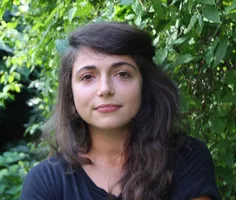
M.Sc. Alina Twerski
Chair of Restoration Ecology
TUM School of Life Sciences
Technische Universität München
Emil-Ramann-Str. 6
85354 Freising
E-Mail: alina.twerski[at]tum.de
I am a restoration ecologist, because I am striving for the restauration of biodiversity of an agroecosystem. My main research question is how rare arable plants contribute to ecosystem services of agricultural landscapes.
Curriculum vitae
| 02/2018 – 2022 | PhD student at the Chair of Restauration Ecology, Technical University of Munich |
| 11/2014 – 01/2018 | Master of Science in Biology with focus on Ecology and Biodiversity, University of Hamburg Thesis: Monodominant flooded savannas in the Pantanal, Brazil: their spatial structure and environmental drivers |
| 04/2013 – 01/2018 | Research assistant at the department of Biodiversity, Evolution and Ecology, University of Hamburg |
| 11/2016 & 06/2017 | Internship at Forest Service of Kristian Herdick, Ettenheim |
| 02/2016 – 07/2016 | Semester abroad; Master of Science in Ecology and Environmental Management, University of Lisbon |
| 11/2011 – 09/2014 | Bachelor of Science in Biology, University of Hamburg Thesis: Vegetation patterns in the Knersvlakte, Republic South Africa: species composition and its abiotic drivers at the boundaries between quartz fields and Heuweltjies or zonal soil types |
| 5/2011 | Academic high school diploma (Abitur), Maria-Theresia-Gymnasium Augsburg |
The use of rare arable plants to enhance ecosystem functions of agroecosystems
Supervisors: PD Dr. Harald Albrecht and Dr. Christina Fischer
Intensification of agricultural land use has led to a strong decline of biodiversity in European farmland, and rare arable plants particularly suffered from this development. An improved knowledge of the functions of this species group could both provide strong arguments for their conservation and more sophisticated recommendations for biodiversity management in agroecosystems. The objective of our study is therefore to fill this gap and to investigate the most important ecosystem functions of rare arable plants, i.e. their contribution to species diversity, their impact on flower visitors, beneficial insects and parasites, on soil fertility and nutrient balance, productivity and landscapes aesthetics. Furthermore, a comparison between the use of rare arable plants and commercial mixtures for flower stripes will be performed. For implementation of new conservation strategies of arable plants, interviews with farmers will be conducted. The purpose of these interviews is to gain knowledge about conditions under which these conservation strategies can be applied. Finally, analyses of funding programs in Bavaria and Thuringia will reveal how concepts for the conservation of arable plants can be integrated into support policies.
This project is founded by the “Deutschen Bundesstiftung Umwelt“ (German Federal Foundation for Environment).